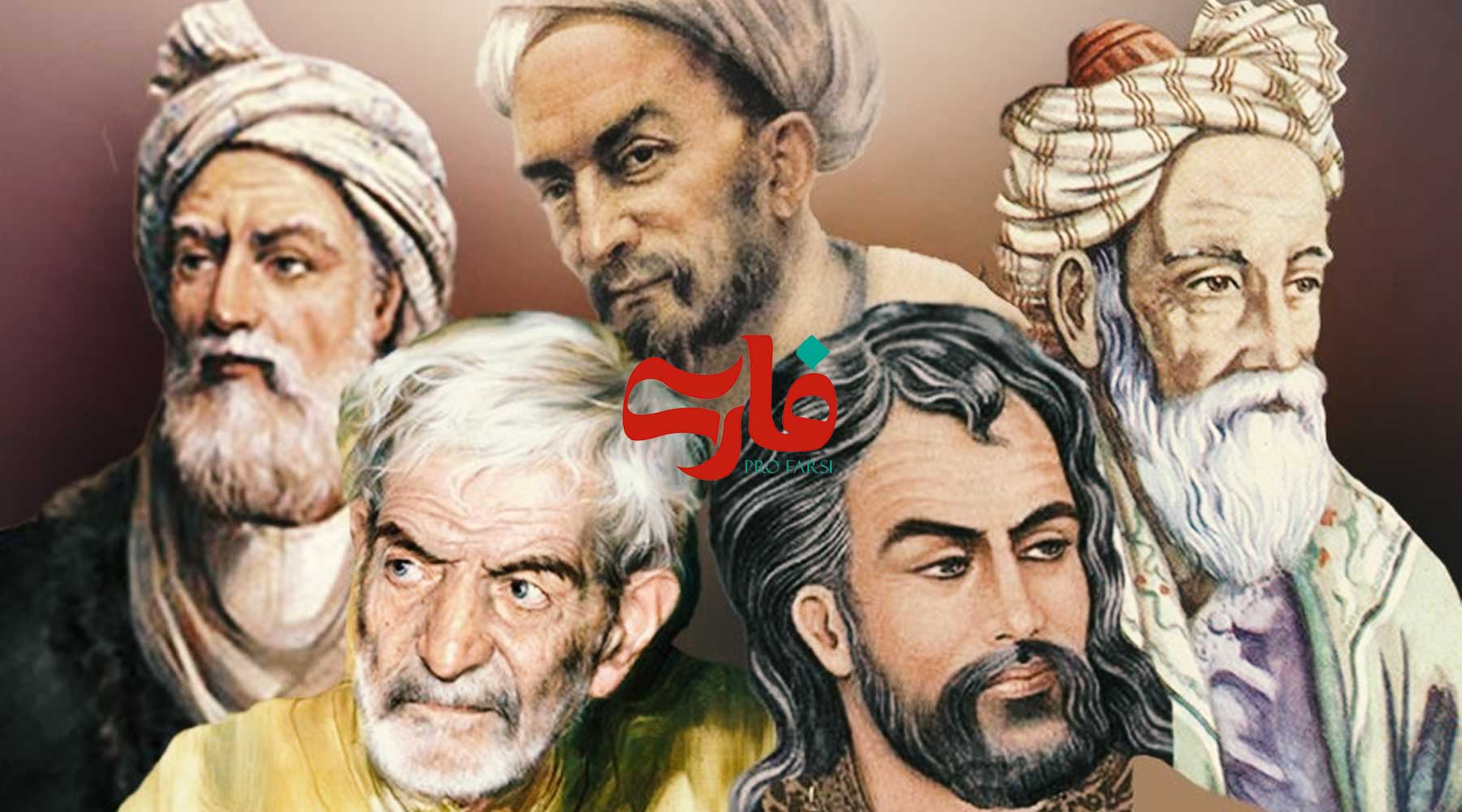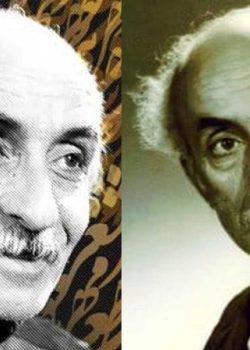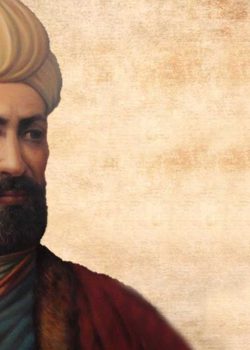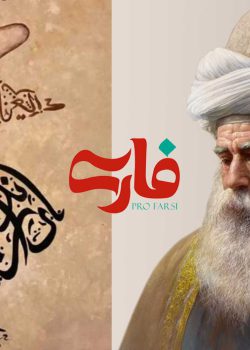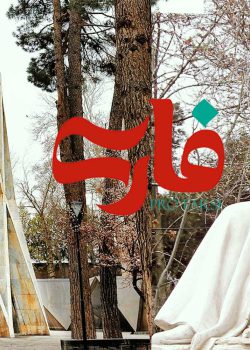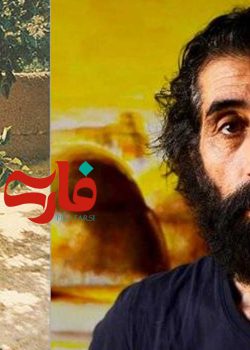Persian quotes, rooted in the rich literary tradition of Persian culture, are profound and poetic expressions that offer timeless wisdom and insights. Drawing inspiration from renowned Persian poets, these quotes capture the beauty of language and delve into themes of love, spirituality, and the human experience. With their lyrical elegance, Persian quotes have a profound impact, inspiring contemplation and serving as guiding principles for personal growth and reflection. They encapsulate the essence of Persian culture, showcasing the power of words to evoke emotions, provoke thought, and connect individuals across time and space.
Here are a few Persian quotes along with their translations
ماییم که از بادهی بیجام خوشیم
هر صبح منوریم و هر شام خوشیم
گویند سرانجام ندارید شما
ماییم که بیهیچ سرانجام خوشیم
Mayim ke az badeye bi jam khoshim
Har sobh monavarim va har sham khoshim
Goyand saranjam nadarid shoma
Mayim ke bi hich saranjam khoshim
“We are the ones who find joy in the cup of wine without a cup. We are illuminated every morning and joyful every evening. They say you have no ultimate destination, but we are the ones who find joy in being without any ultimate destination.”
This verse carries a message of finding joy and contentment in the present moment, rather than constantly seeking a specific outcome or ultimate destination. It suggests that true happiness lies in embracing the simple pleasures of life, such as enjoying the cup of wine, being illuminated by the morning, and finding joy in each passing evening. It challenges the notion of a predetermined final destination and encourages embracing the journey and the present experience without being fixated on an ultimate outcome.
دنیا همه هیچ و اهل دنیا همه هیچ
ای هیچ برای هیچ بر هیچ مپیچ
دانی که پس از عمر چه ماند باقی
مهر است و محبت است و باقی همه هیچ
Donya hameh hich va ahle donya hame hich
Ey hich baraye hich bar hich mapich
Dani ke pas az omr che manad baghi
Mehr ast O mohebat ast O baghi hame hich
“The world is all nothingness, and the people of the world are all nothingness. Oh nothingness, do not engage with nothingness. You know that after life, what remains? Love and affection remain, and everything else is nothingness.”
This verse carries a profound message about the transient and fleeting nature of worldly possessions and achievements. It suggests that the material aspects of life hold little significance in the grand scheme of things. The verse urges one to focus on the enduring qualities of love and affection, which hold value beyond the temporary nature of life. It reminds us to prioritize and cherish meaningful connections and relationships, as they are the true sources of lasting fulfillment and significance.
اگر دانی که دنیا غم نیرزد
بروی دوستان خوشباش و خرم
غنیمت دان اگر دانی که هر روز
زعمر مانده روزی می شود کم
منه دل بر سرای عمر سعدی
که بنیادش نه بنیادیست محکم
Agar dani ke donya gham niyarzad
Beroye dostan khoshbash O khoram
Ghanimat dan agar dani ke har roz
Ze more mande rozi mishavad kam
Mane del bar saraye omr Saadi
Ke bonyadash na bonyadist mohkam
“If you know that the world does not spare sorrow, be cheerful and joyful in the company of friends. Consider it a blessing if you know that each day is one less in your remaining life. Do not lament over the abode of Saadi’s life, for its foundation is not built on a solid foundation.”
This verse, attributed to Saadi Shirazi, conveys several messages. It advises embracing happiness and joy in the company of friends, acknowledging that the world is filled with challenges and sorrows. It reminds us to appreciate each day as a precious gift and not to dwell on the passing of time. The reference to Saadi’s life suggests that one should not worry about the stability or longevity of one’s own existence, but rather focus on building a life based on principles and values that withstand the test of time.
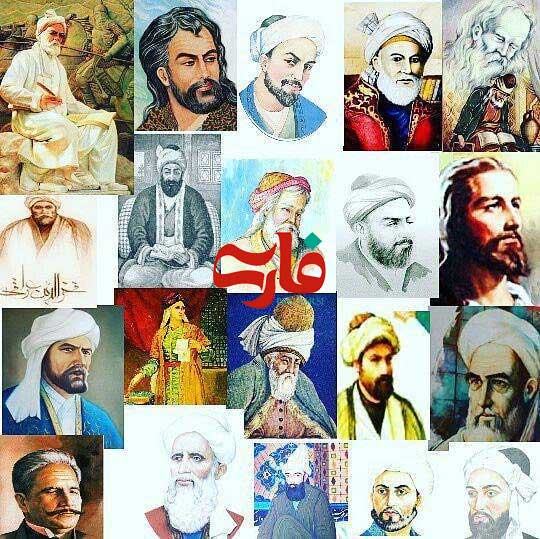
خیام اگر ز باده مستی خوش باش
با ماه رخی اگر نشستی خوش باش
چون عاقبت کارجهان نیستی است
انگار که نیستی چو هستی خوش باش
Khayyam, agar ze bade masti khosh bash
Ba mahe Rakhi agar neshasti khosh bash
Chon aghebat kare jahan nisti ast
Engar ke nisti, cho hasti khosh bash
“Oh Khayyam, if you are delighted by wine’s intoxication, be happy. If you sit with a beautiful-faced moon, be happy. Since the ultimate destiny of the world is uncertain, act as if you don’t exist, and be happy as if you do.”
This verse from the poetry of Khayyam carries a philosophical message about finding contentment and joy in the present moment. It suggests that one should embrace the pleasures that life offers, such as the enjoyment of wine or the company of a beautiful person. At the same time, it reminds us of the impermanence and uncertainty of life’s outcomes. By living in the present and being happy with what we have, regardless of the uncertainty of the future, we can find peace and happiness.
زندگی راستین شما زمانی است که
کاری برای کسی انجام دهید
که توان جبران محبت شما را نداشته باشد
ﺍﺯ ﻟﺤﻈﻪ ﺑﻪ ﻟﺤﻈﻪ ﺯﻧﺪﮔﯽ ﮐﺮﺩﻥ ﮔﺮﯾﺰﯼ ﻧﯿﺴﺖ
ﺑﺎﯾﺪ ﻫﺮ ﻟﺤﻈﻪ ﺭﺍ ﭼﻨﺎﻥ ﺯﻧﺪﮔﯽ ﮐﻨﯽ
ﮐﻪ ﮔﻮﯾﯽ ﻭﺍﭘﺴﯿﻦ ﻟﺤﻈﻪ ﺯﻧﺪﮔﯽ ﺍﺳﺖ
ﭘﺲ ﻭﻗﺖ ﺭﺍ ﺩﺭ ﺟﺪﻝ، ﮔﻼﯾﻪ ﻭ ﻧﺰﺍﻉ ﺗﻠﻒ ﻧﮑﻦ
Zendegi rastine shoma zamani ast ke
Kari baraye kasi anjam dahid
Ke tavane jobrane mohebate shoma ra nadashte bashad
Az lahze be lahze zendegi kardan gorizi nist
Bayad har lahze ra chanan zendegi koni
Ke goyi vapasin lahze zendegi ast
Pas vaght ra dar jadal, gelaye va neza talaf nakon
“True life is when you do something for someone who can never repay your love. For it is not by receiving love that you truly live, but by giving love to others. When you selflessly give and share, you will experience the joy of making a difference, and your kindness will never be forgotten.”
This quote highlights the essence of a meaningful and fulfilling life. It suggests that true fulfillment comes from selflessly helping and serving others without expecting anything in return. It emphasizes the importance of acts of love and kindness towards those who may not have the ability to reciprocate the same level of affection. By giving and sharing selflessly, one can experience the genuine joy and impact that comes from making a positive difference in the lives of others.
ای دل چو زمانه میکند غمناکت
ناگه برود ز تن روان پاکت
بر سبزه نشین و خوش بزی روزی چند
زان پیش که سبزه بردمد از خاکت
Ey del cho zamane mikonad ghamnakat
Nagah beravad ze tan ravane pakat
Bar sabze neshin O khosh bezi rozi chand
Ze an pish ke sabze bardamad az khakat
“Oh heart, when the passing time saddens you,
When your pure soul departs from your body suddenly,
Sit on the grass and enjoy a few moments,
Before the grass grows from your own dust.”
This quote poetically reflects on the ephemeral nature of life. It advises the heart to find solace and joy in the present moment, despite the sorrows that time may bring. The imagery of sitting on the grass and enjoying a few moments symbolizes the importance of appreciating the fleeting beauty of life before one’s own mortality. It serves as a reminder to seize the opportunities for happiness and contentment while they are still within reach.
چون بلبل مست راه در بستان یافت
روی گل و جام باده را خندان یافت
آمد به زبان حال در گوشم گفت
دریاب که عمر رفته را نتوان یافت
Chon bolbole mast rah dar bostan yaft
Roye gol O jame bade ra khandan yaft
Amad be zabane hal dar gosham goft
Daryab ke more rafte ra natavan yaft
“When the intoxicated nightingale found its way in the garden,
It found the face of the flower and the cup of wine smiling.
The language of the moment whispered in my ear,
Realize that the lost life cannot be found.”
This quote depicts a metaphorical scene of a nightingale finding its way in a garden and encountering the beauty of flowers and the joy of wine. The phrase “the language of the moment” suggests that there is a deeper message or understanding conveyed through the present experience. The quote concludes with a reflection on the fleeting nature of life, emphasizing that once time passes, it cannot be retrieved. It encourages embracing and appreciating the present moment, as the opportunities and experiences of life are transient and should be cherished.
لحظهها میگذرند
گرم باشیم و پر از فکر و امید عشق
باشیم و سراسر خورشید
زندگی همهمهی مبهمی از رد شدن خاطرهها
هرکجا خندیدیم، هرکجا خنداندیم
زندگانی آنجاست
Lahzeha migozarand
Garm bashim O por az fekre O omid eshq bashim
Va sarasar khorshid
Zendegi hamhameye mobhami az rad shodane khatereh hast
Har koja khandidim, har koja khandandim
Zendegi Anjast
“Moments pass by. Let us be warm, filled with thoughts and hopeful love. Let us be the embodiment of the sun. Life is the murmuring of vague memories passing. Wherever we laughed, wherever we made others laugh, that is where life resides.”
This quote reflects on the fleeting nature of moments in life and encourages embracing warmth, positivity, and hope. It suggests that by radiating love and joy, we can bring life and vitality to our experiences. The mention of memories passing implies that life is a collection of fleeting moments, and the essence of living is found in the moments of laughter and making others happy. It emphasizes the importance of cherishing joyful moments and spreading happiness to create a vibrant and meaningful existence.
زندگی را میگویم
اگر بخواهی از آن لذت ببری
همه چیزش لذت بردنی است
اگر بخواهی از آن رنج ببری
همه چیزش رنج بردنی است
کلید لذت و رنج در دست توست
Zendegi ra migoyam
Agar bekhahi az an lezat bebari
Hame chizash lezat bordani ast
Agar bekhahi az an ranj bebari
Hame chizash ranj bordani ast
Kelid lezat O ranj dar daste tost
“I speak of life. If you wish to enjoy it, everything about it is enjoyable. If you wish to suffer from it, everything about it is painful. The key to joy and suffering is in your hands.”
This quote highlights the perspective that the experience of life, whether positive or negative, is subjective and dependent on one’s own perception and approach. It suggests that the enjoyment or suffering in life is not inherent in the circumstances themselves, but rather in how we choose to perceive and respond to them. The quote empowers individuals by emphasizing that they have control over their experiences and can shape their own happiness or suffering based on their mindset and attitude.
تو را به جای همه کسانی که نشناخته ام
دوست می دارم
تو را به جای همه روزگارانی که نمیزیسته ام
دوست می دارم
To ra be jaye hame kasani ke nashenakhte am
Doost midaram
To ra be jaye hame roozegarani ke nemiziste am
Doost midaram.
“Instead of all the people I haven’t known, I love you. Instead of all the moments I haven’t lived, I love you.”
This quote expresses a deep and heartfelt affection for someone, emphasizing the uniqueness and significance of their presence in the speaker’s life. It conveys the idea that despite not knowing or experiencing everything, the love for this particular person surpasses all others.
هر چه گویی آخری دارد به غیر از حرف عشق
کاین همه گفتند و آخر نیست این افسانه را
Harchse guyi akhari darad be gheir az harf eshgh
Kin hame goftand o akhar nist in afsane ra
“Everything you say has an end except for the words of love. They all have said this, and yet this legend is not over.”
This quote reflects the timeless and enduring nature of love. It suggests that while words may fade or lose their impact over time, the power of love and its expression through words remains constant. The quote highlights the idea that despite countless words spoken about love, the essence of love itself remains eternal and unconstrained by the limitations of language.
تو همانی که دلم لک زده لبخندش را
او که هرگز نتوان یافت همانندش را
To hamani je delam lak zade labkhandash ra
O ke hargez natvan yaft hamanandash ra
“You are the one who has captured my heart with your smile, the one who can never be found like them.”
This quote expresses the deep admiration and unique connection the speaker feels towards the person they are addressing. The smile of that person holds a special place in the speaker’s heart, and they believe that finding someone similar to them is impossible. It conveys a sense of appreciation and the perception that the person being spoken to is truly exceptional and irreplaceable.
هر که نامخت از گذشت روزگار
نیز ناموزد ز هیچ آموزگار
Harke namokht az gozashte roozegar
Niz namoozad ze hich amoozegar
“Whoever remains ignorant despite the passage of time, shall never learn from any teacher.”
This quote emphasizes the importance of being open to learning and gaining knowledge throughout one’s life. It suggests that individuals who persist in ignorance, regardless of the passage of time, will fail to benefit from any teacher or source of wisdom. The quote underscores the significance of a curious and receptive mindset in the pursuit of knowledge and personal growth.
دود اگر بالا نشیند کسر شان شعله نیست
جای چشم ابرو نگیرد گرچه او بالاتر است
Dood agar bala neshinad kasre shane shole nist
Jaye chashm abroo nagirad garche o balatar ast
“If smoke rises, it does not mean their flame is diminished. Just because the eyebrow is above, it doesn’t mean it takes the place of the eye.”
This quote highlights the idea that appearances can be deceiving. It suggests that just because something or someone appears to be in a position of superiority or prominence, it doesn’t necessarily mean they possess the qualities or abilities that are expected of them. The quote serves as a reminder not to judge solely based on external appearances and to look beyond surface-level observations to truly understand the essence and capabilities of a person or situation.
خدایا چنان کن سر انجام کار
تو خوشنود باشی و ما رستگار
Khodaya chenan kon sar anjam kar
To khoshnood bashio ma rastegar
“Oh God, make it so that at the end of this task, You are pleased, and we are saved.”
This quote reflects a heartfelt plea to God for guidance and success in completing a task or endeavor. It expresses a desire for divine approval and the ultimate happiness and well-being of the person saying it. The quote acknowledges the belief that achieving God’s satisfaction leads to personal fulfillment and salvation.
تا رنج تحمل نکنی گنج نبینی
تا شب نرود صبح پدیدار نباشد
Ta ranj tahamol nakoni ganj nabini
Ta shab naravad sobh padidar nabashad
“Until you endure hardship, you won’t see the treasure. Until night passes, morning won’t appear.”
This quote conveys the idea that valuable rewards and positive outcomes often require perseverance and patience. It suggests that one must be willing to endure difficulties and challenges in order to attain the desired outcome or find the hidden treasure. It also emphasizes the cyclical nature of life, where one must go through the darkness of the night before witnessing the light of dawn. The quote serves as a reminder to stay resilient and hopeful, knowing that perseverance can lead to eventual success and clarity.
Read More:
khayyam poems in english and farsi
Related Posts

